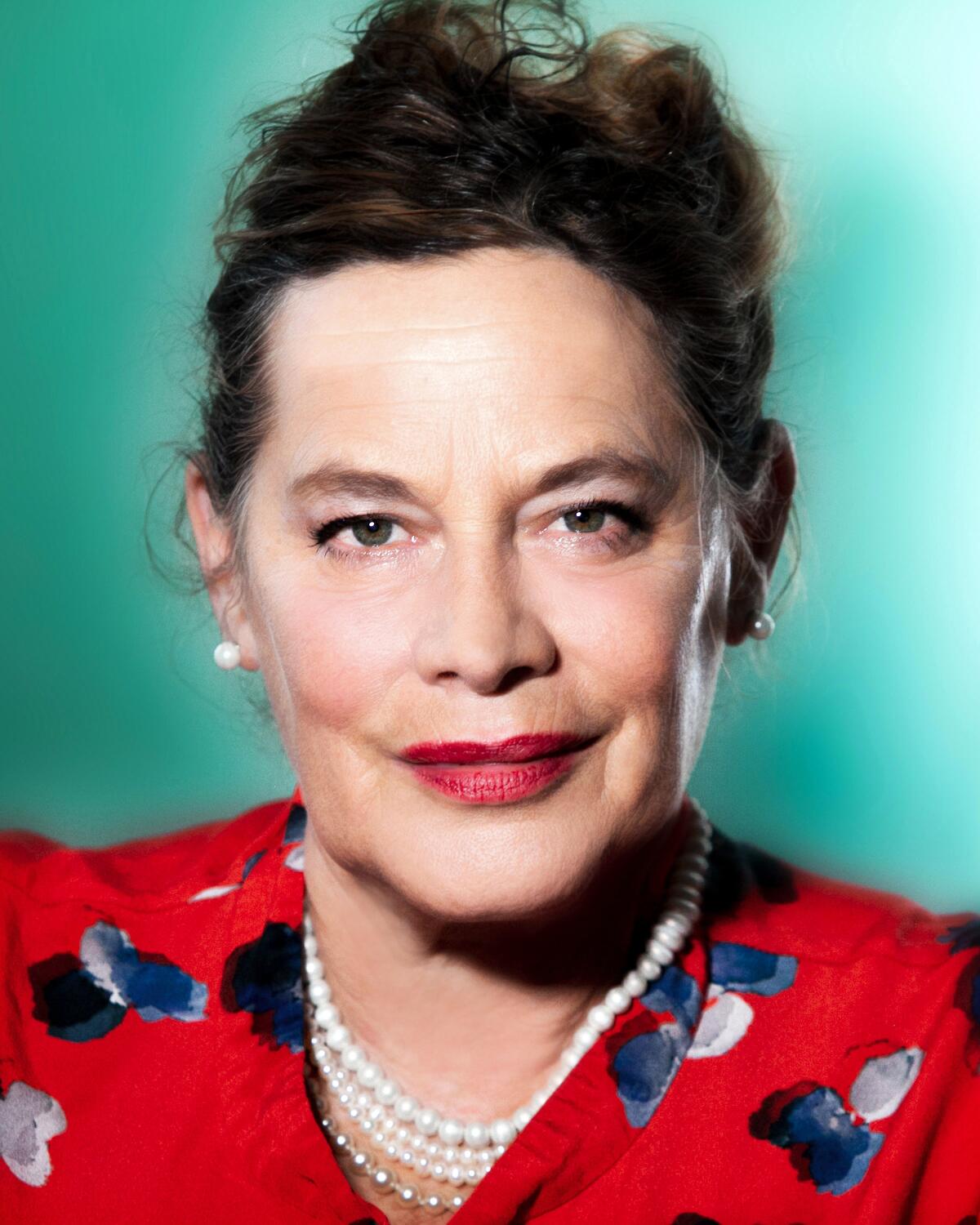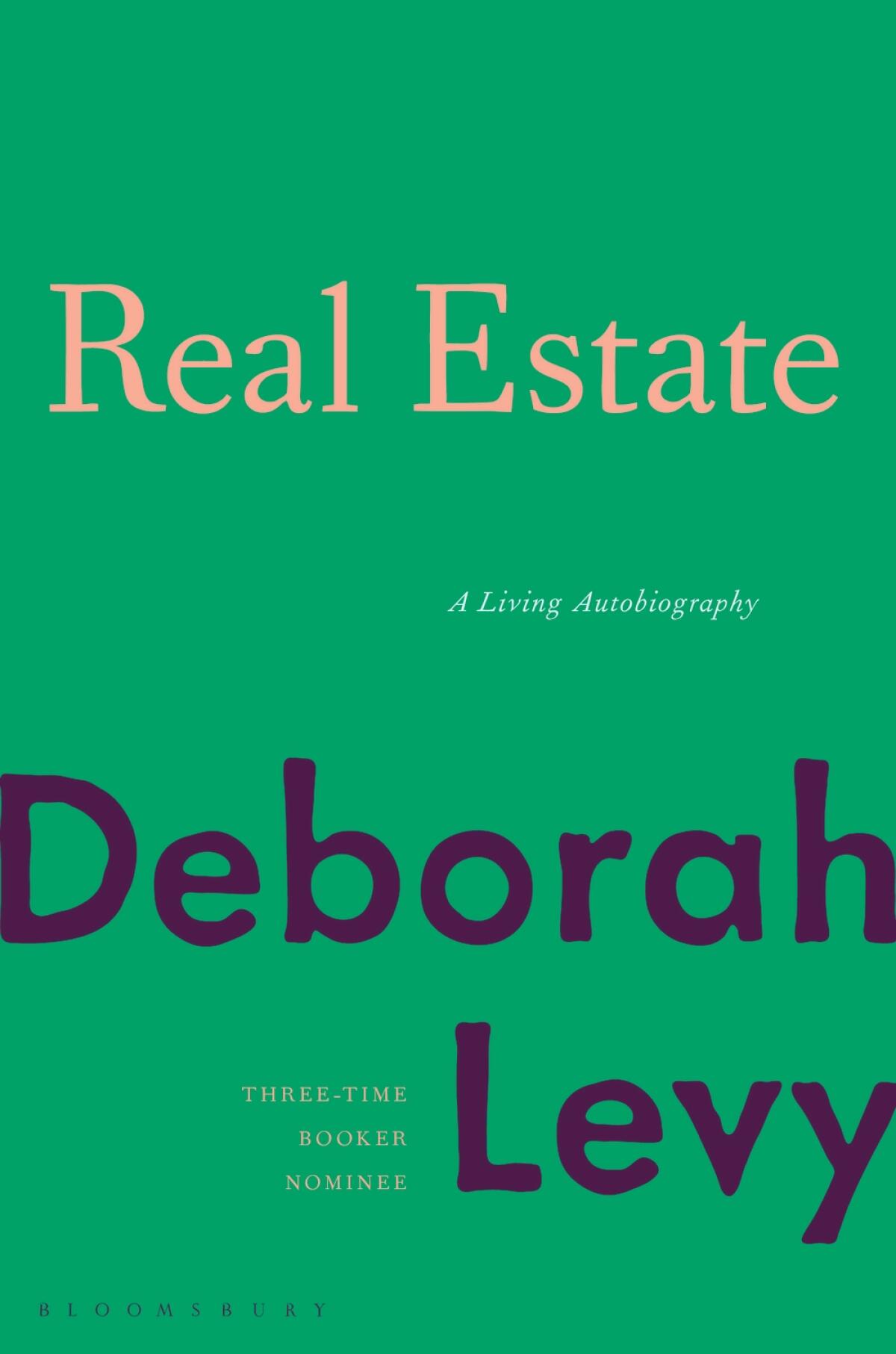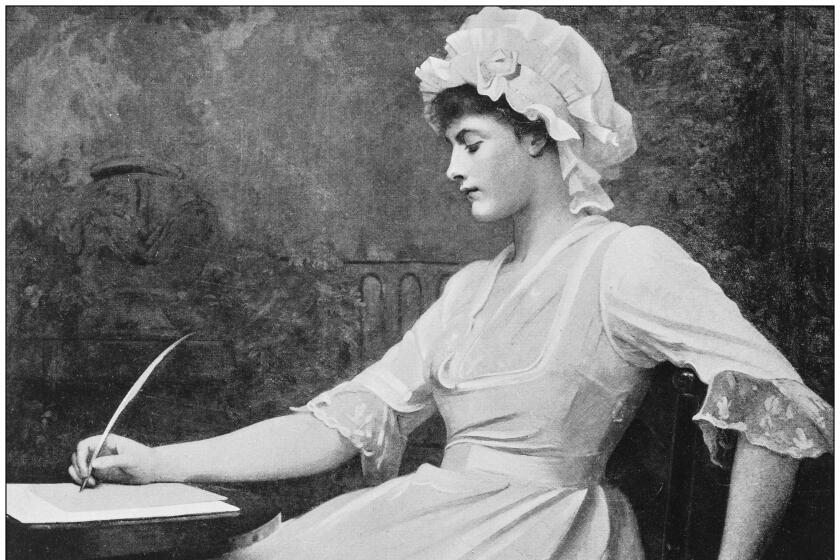Review: Masterful memoirist Deborah Levy finds an empty nest of her own

- Share via
On the Shelf
Real Estate
By Deborah Levy
Bloomsbury: 224 pages, $20
If you buy books linked on our site, The Times may earn a commission from Bookshop.org, whose fees support independent bookstores.
In the middle volume of her “Living Autobiography” trilogy, British writer Deborah Levy asked, “What does it take for a woman to be the main character in her life?” Her bracing trio of memoirs — which began with “Things I Don’t Want to Know” in 2013, continued with “The Cost of Living” in 2018, and now concludes in fine form with “Real Estate” — explores questions of female autonomy and self-realization (although the author would never describe it in such clinical terms).
For Levy, becoming the main character in her life involved finding her voice and making herself heard in a patriarchal world. That required leaving her marriage to start afresh at age 50 — a costly risk, financial and otherwise, but worth the price. (“Freedom is never free,” she notes in “The Cost of Living.”)
“Real Estate,” which finds Levy in a good place, focuses on her relationship with property, ownership and home. Writing in pre-pandemic 2019 on the cusp of her 60th birthday, she ponders how she wants to live now that her younger daughter is headed to college and she’ll be untethered from the crumbling North London apartment block she and her two daughters moved into after her divorce.
Levy takes stock of the many ways in which “Life had taken a turn for the better.” Although she’s been writing since her 20s — initially mostly plays and poetry — her career finally took off in her 50s. Her three most recent novels, “Swimming Home,” “Hot Milk” and “The Man Who Saw Everything,” were all nominated for Booker prizes.
“The suburb of femininity is not a good place to live,” Deborah Levy wrote in “Things I Don’t Want to Know” (2014), her shrewd response to George Orwell’s 1946 essay, “Why I Write.”
Now that her books are widely translated, she travels on promotional tours and speaks at literary festivals, including one in Mumbai, India. A fortuitously timed fellowship sends her to Paris for a nine-month residency. She moves into a barebones apartment in Montparnasse, which she calls her empty nest, and researches doppelgängers while working on her novel “The Man Who Saw Everything” (2019), about an Englishman who lives in the past and present simultaneously. It’s a challenging but meaty read, which — like much of her fiction — involves shifting perspectives, an unreliable narrator, blurred boundaries and an interest in the way memory collapses time.
Not everyone celebrates her good fortune. At a literary party in London, an unpleasant “male writer of some note” tries to burst her balloon. “Do you sometimes look in the mirror and think all this success came rather late in the day and so much exposure is rather vulgar, a total bore and awfully fatiguing?” he asks snidely.

It’s Levy’s openness to the quirks and peccadilloes of others — including her best male friend, headed into his third divorce after a dalliance with a much younger woman — that makes Levy’s work so invigorating. She’s a prober, but not a heavy-handed one. On turning 60, she writes, “I was thinking about existence. And what it added up to. Had I done okay? Who was doing the judging? Had there been enough happy years, had there been enough love and loving? Were my own books, the ones I had written, good enough?”
Her prose is at once playful and multilayered. She offers fascinating glimpses into how her experiences sometimes work their way into her novel-in-progress. She also considers what drives her work: “I supposed that my literary purpose was to think freely, or rather for the books to speak freely on my behalf.” She adds, “The point of thinking is that it will always muddy the water. So how do we live with our free thoughts and the mud?”
“Second Place,” Rachel Cusk’s first novel after the radical, brilliant “Outline” trilogy, follows a forceful woman who’s had enough of difficult men.
“Real Estate” is not about the sort of house lust that Meghan Daum considered in “Life Would Be Perfect if I Lived in That House.” It is as much about being at home in one’s life as it is about domiciles. Levy writes that she craves “a house in which I could live and work and make a world at my own pace, but even in my imagination this home was blurred, undefined, not real...”
Her previous memoir peeled back the layers of meaning, for writers and for women, in that stock economic term, “the cost of living.” Here she reminds us that the word “real” is derived from the Latin word “rex,” meaning royal, and that real estate often has little to do with reality. She inventories her requirements, including proximity to a lake or sea, because “A life without swimming every day was not a life I wanted.” A summer rental on the Greek island of Hydra suits her well, although she recognizes that it’s beyond her means. In fact, she dubs her fluctuating fantasies about dream homes “unreal estate.”
Levy’s autobiographical project bears some resemblance to Rachel Cusk’s fictional “Outline” trilogy. Both are personal odysseys narrated by divorced writers who raise two children and frequently travel for work, though Levy — in keeping with her determination to be the main character in her life — puts more of herself on the page, including a welcome levity.
At a reading in Germany, she reports, a woman asked how closely her books reflected her life. “I told her the weight of living has been heavier in my life than it is in my books.” She explains, “I did not wish to make light of the living, but rather to throw light on it, and shadow too.”
Levy’s work also evokes that of Sigrid Nunez, another critically acclaimed long-haul writer whose literary star rose markedly in her late 50s with “The Friend,” winner of a 2018 National Book Award. Both writers frequently dip into their inner library of favorite authors to frame their thoughts. Levy’s literary touchstones include Simone de Beauvoir, Virginia Woolf and Marguerite Duras.
In “Real Estate,” Levy reminds us that happiness can’t be measured in holdings, square footage or property values. “Of all the arts,” she writes, “the art of living is probably the most important.” It’s a skill she’s polished, like her writing, to a fine sheen.
Novelist Lynn Steger Strong on the revolutionary passivity of Rachel Cusk, Ottessa Moshfegh and Sally Rooney — how we’ve misread them and what comes next.
A longtime contributor to The Times, McAlpin reviews books for NPR, the Wall Street Journal and the Christian Science Monitor.
More to Read
Sign up for our Book Club newsletter
Get the latest news, events and more from the Los Angeles Times Book Club, and help us get L.A. reading and talking.
You may occasionally receive promotional content from the Los Angeles Times.







